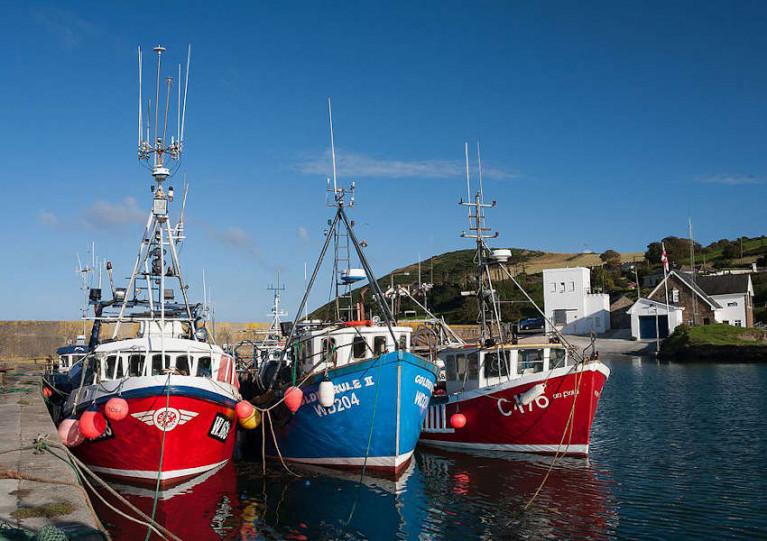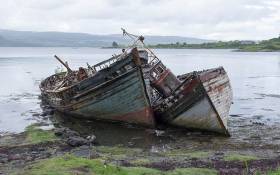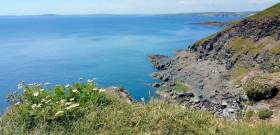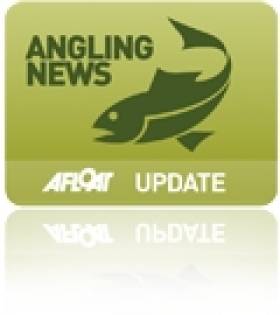Displaying items by tag: law
Marine Notice No 20 of 2021 reminds owners, skippers and crew of fishing vessels of the requirement for crew lists on all registered fishing vessels.
Article 12 of the Annex to Council Directive (EU) 2017/159 — which aims to implement the Work in Fishing Convention, which in turn aims to ensure decent work and living conditions in the fishing sector — requires that every fishing vessel carry a crew list.
The European Union (International Labour Organisation Work in Fishing Convention) (Crew List and Fisherman’s Work Agreement) Regulations, 2020 (SI No 333 of 2020), were signed into law on 1 September 2020. Regulation 5 of SI No 333 of 2020 implements Article 12 of the Annex to the Directive and sets out the requirement in relation to crew lists.
The regulations place a responsibility on every registered fishing vessel to carry a crew list which shall be communicated ashore by the master, either prior to the departure of a fishing vessel or immediately after the departure of a fishing vessel. They also specify the minimum mandatory contents of the crew list and also to whom the crew list shall be communicated.
Full details of the requirements are included in Marine Notice No 20 of 2021, a PDF of which is available to download below.
Canadian boat owners could be liable to fines of up to €4 million under new legislation to tackle the scourge of abandoned vessels on the country’s coastlines, particularly in the western province of British Columbia.
International Boat Industry reports that the Wrecked, Abandoned or Hazardous Vessels Act sets a prohibition on abandoning vessels while increasing owner responsibility for problem boats — and giving the Canadian government new powers to remove them.
Authorities in Ireland have similar powers under the Canal Act 1986 (Bye-Laws) 1988 to remove from inland waterways any non-permitted vessels, non-attended and apparently abandoned vessels, boats that are double-moored or causing an obstruction, or vessels deemed to be/likely to cause a hazard to navigation.
The new Canadian law can levy “penalties of up to $50,000 (CAD) for individuals and $250,000 for companies or corporations, while regulatory offence prosecution could result in a maximum fine of $1m for individuals and $6m for companies or corporations.”
It comes as part of a National Strategy to Address Canada’s Wrecked and Abandoned Vessels, which has included funding programmes to support coastal communities in the removal of smaller derelict vessels blighting their localities.
International Boat Industry has more on the story HERE.
‘Harbour Constables’ Proposal For Cork Coastline
#CoastalNotes - A new harbour patrol for the South Coast? That’s what Cork County Council is proposing in new measures to curb what’s being seen as a “free for all” along the county's lengthy coastline.
According to the Irish Examiner, draft bylaws are being drawn up that would place limits on speed limits in bays and areas for jet ski use, as well as impose berthing charges among the more than 200 harbours and piers on the Cork coast.
County Hall in Cork city is also expected to shortly announce recruitment for “harbour masters or harbour constables” with responsibility for piers not currently being regulated.
While the new regime would see stronger enforcement of laws against reckless vessel use inshore, it’s also envisaged that harbour constables would liaise with the Garda in cases of suspected drug trafficking through rural, unsupervised landing areas.
The Irish Examiner has more on the story HERE.
Minister Announces Funding For Marine Research Projects
#MarineScience - Marine Minister Michael Creed has announced the awarding of €3.3 million grant funding through the Marine Institute to research projects in specialist marine equipment and ocean law.
Some 19 funding grants in total have been made in the area of specialist marine equipment and small infrastructure, totalling more than €2.5 million.
The Higher Education Institutes (HEI) sector will receive 14 of these grants with five being granted to industry-led proposals (SMEs). The funding grants range from €20,000 to €200,000, with industry being funded at 75 per cent — meaning that these will also leverage private investment in specialist marine equipment for research and innovation development.
The ocean law and marine governance grant is being made to a partnership project between the MaREI Centre and University College of Cork School of Law. The funding amounts to €800,000 and will run over four years, employing three researchers with contributions from 12 MaREI and five UCC School of Law staff.
More than 20 researchers attended the announcement of the grants yesterday (Wednesday 22 November) in Dublin city centre.
“I’m delighted to announce these funding grants which herald the next step forward for many new projects in our marine sector,” said Minister Creed. “The funding for marine research equipment helps to target a gap in funding that exists between supports available to Higher Education Institutes via HEA and support from Ireland’s development agencies such as SFI and Enterprise Ireland.
“These grants will allow the marine research and innovation community to purchase specialist equipment needed to support their current and future research activities.”
Peter Heffernan, CEO of the Marine Institute, said the funding grants would enable pioneering marine research projects to develop in decades to come.
“The ocean law and marine governance grant marks a very important step in investing further in the area of marine law and governance,” he said.
“During the development of the National Marine Research and Innovation Strategy, it was indicated that this important research area should be supported and the Marine Institute, Department of Agriculture, Food and the Marine and the Department of Foreign Affairs were consulted and a call was launched for a project-based funding grant.
“We are delighted that the MaREI Centre and UCC School of Law will be collaborating on this project which is called Navigate and will be led and co-ordinated by Dr Anne Marie O’Hagan, a senior post-doctoral research fellow in the Marine and Coastal Governance Group in the MaREI Centre.”
Drinking & Boating? Think Again - Alcohol Persists As ‘Significant Factor’ In Marine Incidents Says DTTAS
#Alcohol - Alcohol consumption “continues to be a significant factor” in marine incidents involving recreational craft.
That’s according to the Department of Transport, Tourism and Sport (DTTAS), whose latest Marine Notice highlights the risks to the public associated with drink and drugs when operating or simply travelling on the water.
The DDTAS cities “the concern expressed” by the Marine Casualty Investigation Board (MCIB) over the number of incidents it has investigated since 2010 that involve alcohol.
As laid out in a previous Marine Notice from 2012, the law requires that masters or owners of pleasure craft must not operate their vessels or allow others to do so while under the influence.
Similarly, any person on board such craft must not consume drugs or alcohol in circumstances that could affect theirs or others’ safety. Persons being towed or on board any vessel or object being towed by a pleasure craft must also avoid drugs or alcohol.
A fixed penalty of €150 applies to any failure to comply with this law, with potential for prosecution and fines of up to €5,000.
Moreover, fines of up to €100,000 and prison terms of up to two years may apply in cases where “deliberate or reckless action” under the influence is a factor.
More details can be found in Marine Notice No 15 of 2017, a PDF of which is available to read or download HERE.
Parties Face Backlash Over Angling Charge Concerns
#Angling - Government parties may face a backlash in next month's local elections over new angling regulations, with fears of a return of the rod licence disputes - or 'rod wards' - of the late 1980s.
As previously reported on Afloat.ie, the proposed new Inland Fisheries Bill aims to toughen legislation in the river and lake fishing sector and provide a stronger framework for angling regulation (see HERE for an FAQ on the proposals).
But as The Irish Times reports, anglers are wary that the legal update will introduce compulsory charges for all game, coarse pike and sea angling nationwide, as well as a national register with ID cards and a penalty points regime.
While the move towards new legislation has been welcomed by the Angling Council of Ireland, it is facing strong opposition from the Trout Anglers Federation of Ireland and the Federation of Irish Salmon and Sea Trout Anglers, both of which broke away from the council some years ago - as well as the Irish Federation of Pike Angling Clubs, whose members voted against any proposal for compulsory charges at its last AGM.
The Irish Times, which has much more on the story HERE, has meanwhile dismissed opposition to the new bill in an editorial, stating that "if a resource is not directly owned and managed, it tends to be ruthlessly exploited" and claiming that "raw emotion is driving opposition to change".
What do you think about the proposals for Ireland's angling resource? Have your say in the comments below.
British Boat Users Sailing Abroad Risk Fines Over Red Diesel
#NEWS UPDATE - British boat users are risking big fines if they sail their craft outside UK waters due to new laws on the use of red diesel, the Daily Telegraph reports.
New laws coming into force on 1 April "will require anyone moving into international waters to sign a declaration that their boat is not being powered by red diesel".
Red-dyed diesel is used by farmers and commercial fishermen throughout the UK at a lower rate of duty. It is also widely used by recreational boaters and yacht owners, as is green diesel by Irish pleasure boaters, though such users have been required to pay the full rate of tax for a number of years now.
However, the European Union is now clamping down on the use of dyed diesel.
The decision by Brussels is causing consternation among the yachting community, which argues that unmarked or 'white' diesel is not widely available in harbours and marinas.
And concerns remain over the presence of biofuels in white diesel which, as previously reported on Afloat.ie, can be harmful to marine engines.
The Daily Telegraph has more on the story HERE.






























































